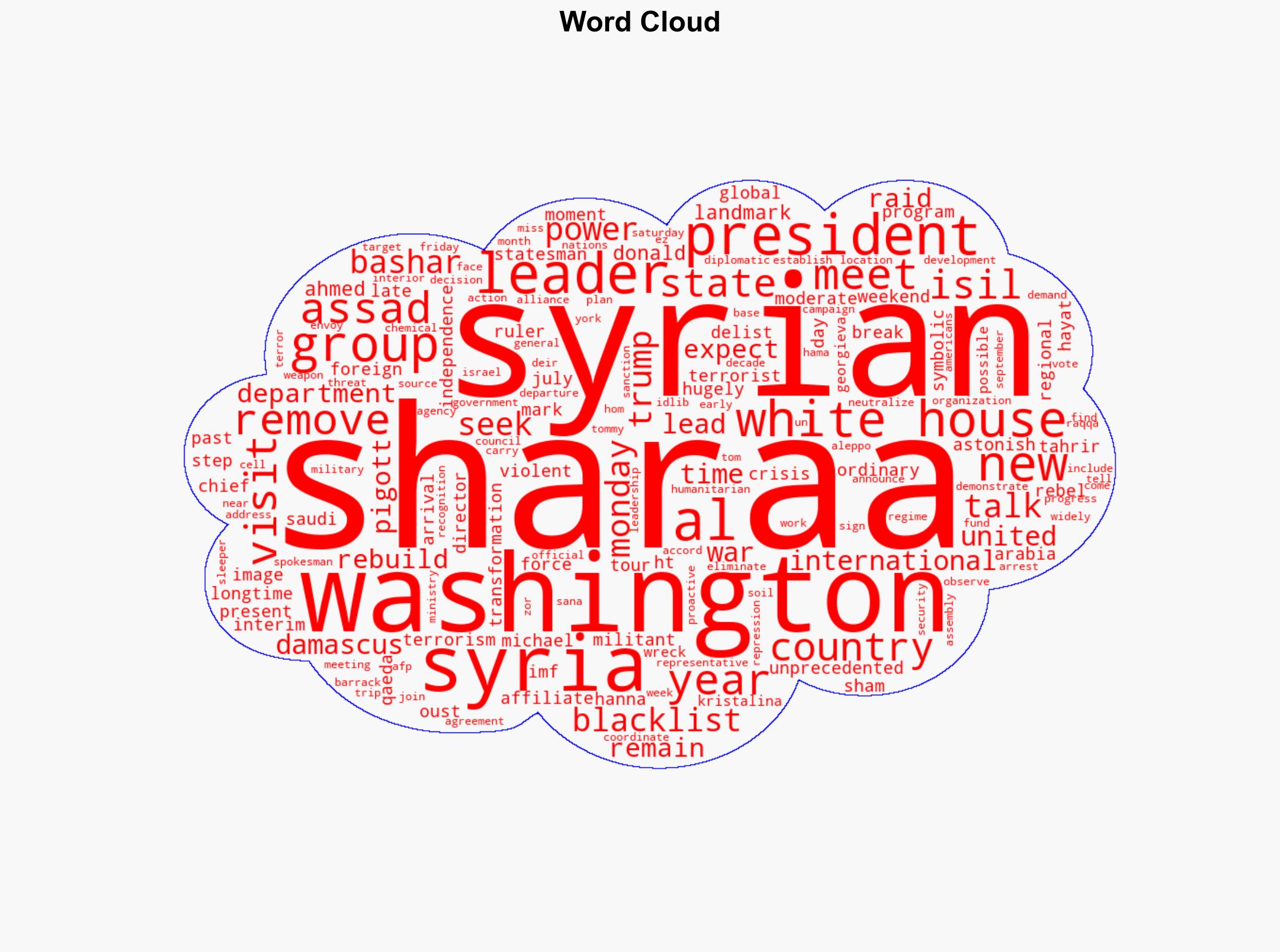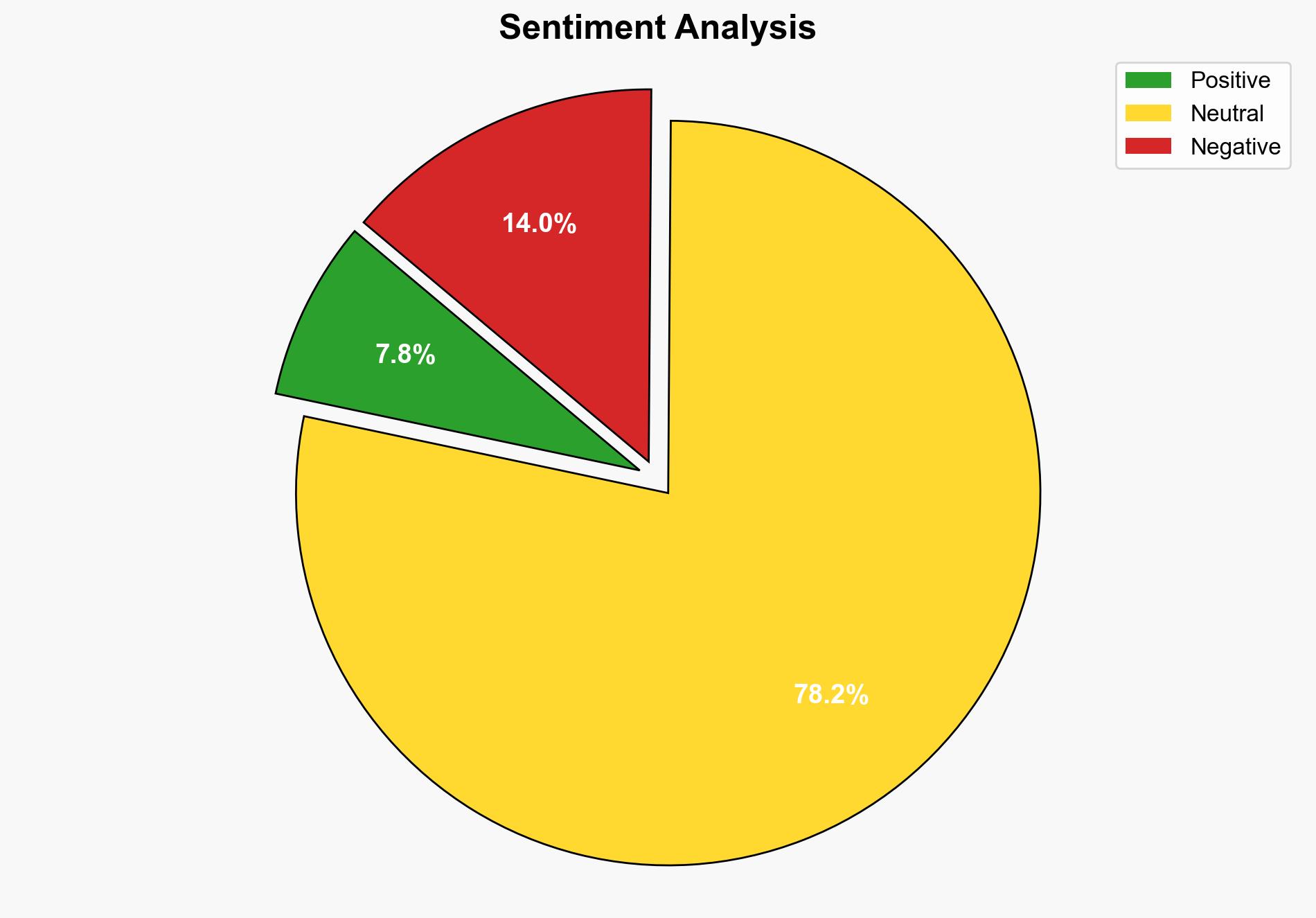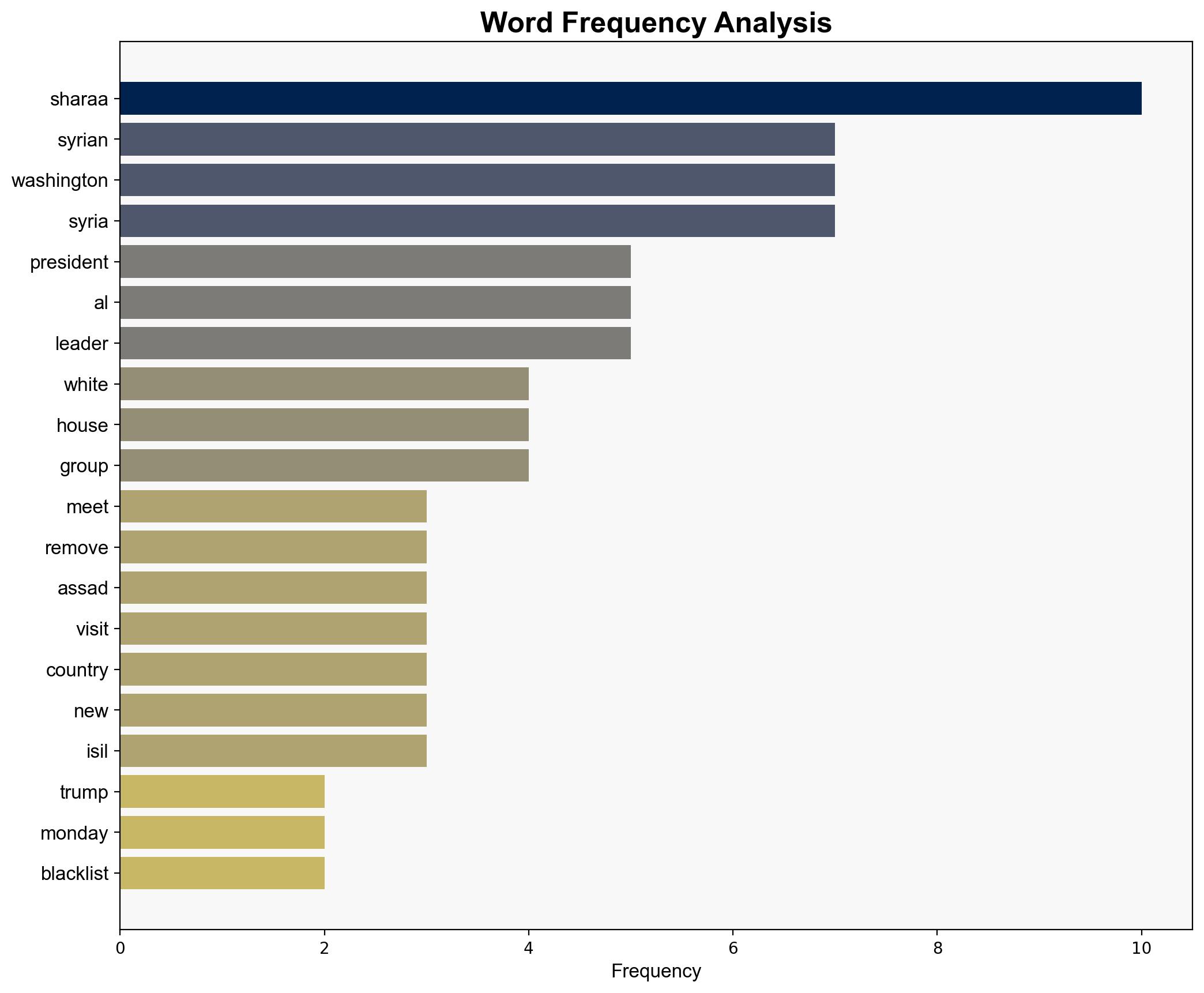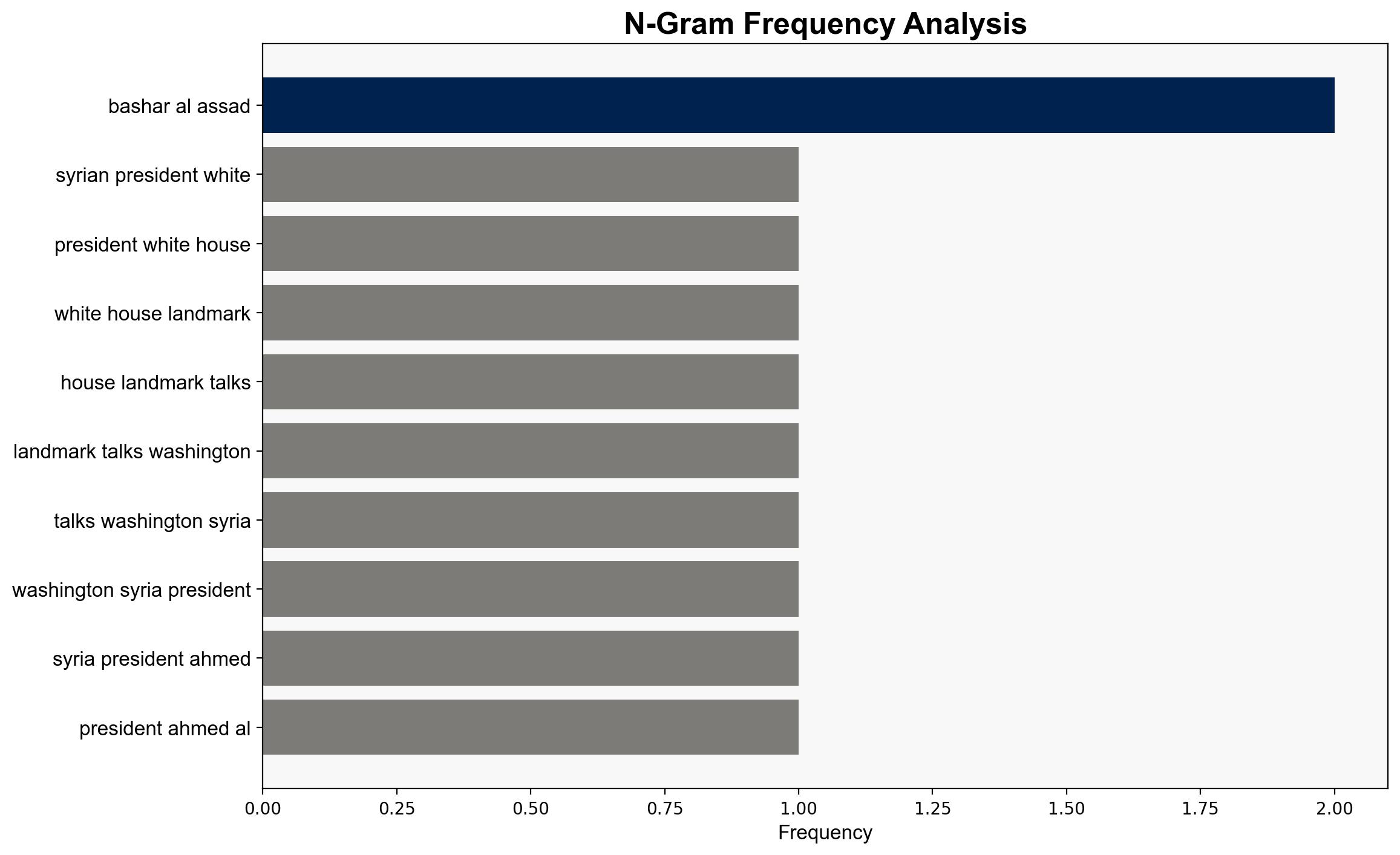Syrian president due at White House for landmark talks – Hurriyet Daily News
Published on: 2025-11-10
Intelligence Report: Syrian president due at White House for landmark talks – Hurriyet Daily News
1. BLUF (Bottom Line Up Front)
The most supported hypothesis is that the Syrian president’s visit to the White House signifies a strategic pivot by the U.S. to engage with Syria’s new leadership, potentially to stabilize the region and counterbalance other regional influences. Confidence level: Moderate. Recommended action: Monitor the outcomes of the talks closely and prepare for shifts in regional alliances and U.S. foreign policy adjustments.
2. Competing Hypotheses
1. **Hypothesis A**: The visit represents a genuine shift in U.S. policy towards Syria, aiming to stabilize the region by recognizing and supporting the new leadership under Ahmed al Sharaa. This includes potential cooperation on counter-terrorism and economic rebuilding efforts.
2. **Hypothesis B**: The visit is primarily symbolic, intended to pressure other regional actors and does not indicate a substantial change in U.S. policy. The focus is on optics rather than tangible policy shifts, with limited follow-through expected.
Using ACH 2.0, Hypothesis A is better supported due to the removal of Sharaa from the terrorism blacklist, planned cooperation on counter-terrorism, and the symbolic nature of the visit aligning with broader U.S. strategic interests in the region.
3. Key Assumptions and Red Flags
– **Assumptions**: The U.S. believes that engaging with Sharaa will lead to regional stability and counter-terrorism benefits. Sharaa’s government is willing to cooperate with international norms.
– **Red Flags**: The rapid transformation of Sharaa from a militant leader to a statesman raises concerns about the authenticity of his moderate stance. The potential for deception or hidden agendas exists, given past affiliations with extremist groups.
– **Blind Spots**: Lack of detailed information on Sharaa’s internal support and the actual capacity of his government to implement promised reforms.
4. Implications and Strategic Risks
– **Geopolitical Risks**: A shift in U.S. policy could alter regional power dynamics, affecting relationships with allies such as Saudi Arabia and Israel.
– **Economic Risks**: The cost of rebuilding Syria is substantial, and international financial support may be limited by geopolitical considerations.
– **Counter-Terrorism Risks**: The potential for sleeper cells and remaining extremist elements to exploit the transition period in Syria.
5. Recommendations and Outlook
- Monitor the implementation of agreements made during the talks to assess the sincerity and capacity of Sharaa’s government.
- Engage with regional allies to manage potential shifts in alliances and ensure coordinated counter-terrorism efforts.
- Scenario Projections:
- Best: Successful integration of Syria into the international community, leading to regional stability.
- Worst: Breakdown of talks, leading to increased regional tensions and resurgence of extremist activities.
- Most Likely: Gradual improvement in relations with cautious optimism, contingent on Sharaa’s actions.
6. Key Individuals and Entities
– Ahmed al Sharaa
– Donald Trump
– Michael Hanna
– Kristalina Georgieva
– Tommy Pigott
– Tom Barrack
7. Thematic Tags
national security threats, counter-terrorism, regional focus, geopolitical strategy





